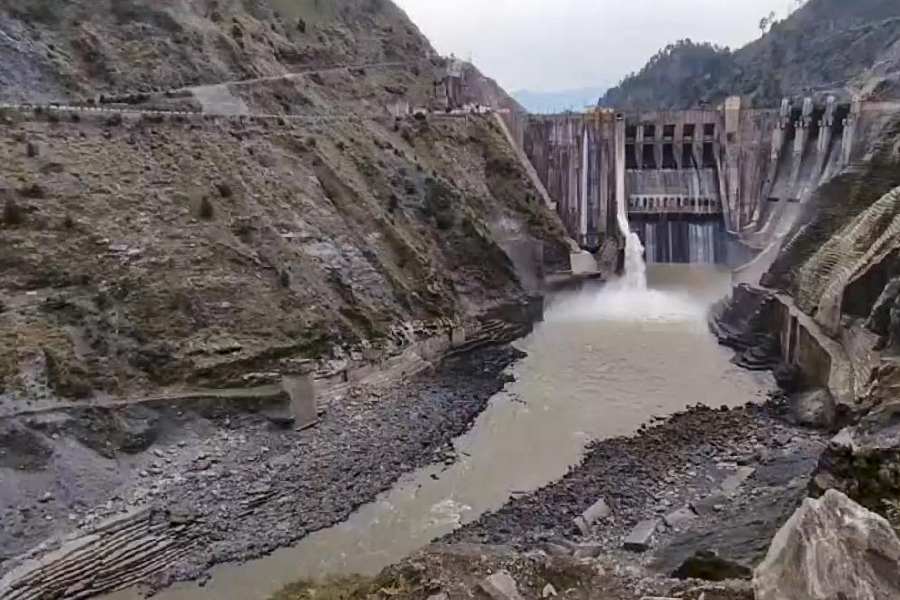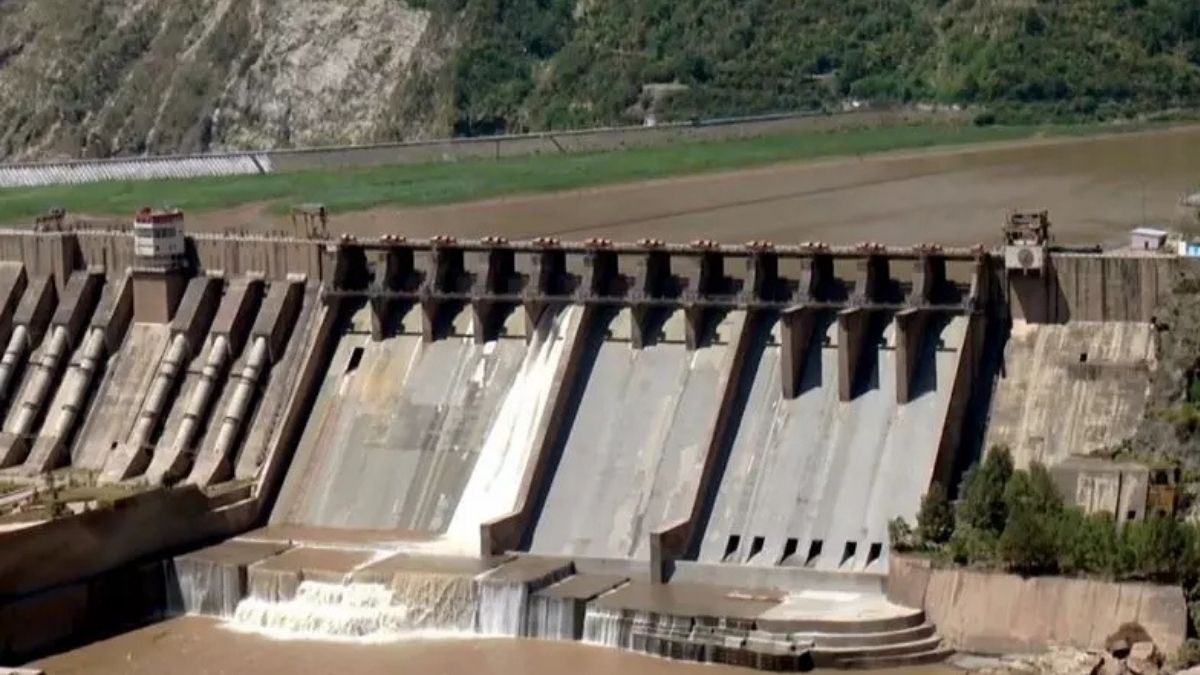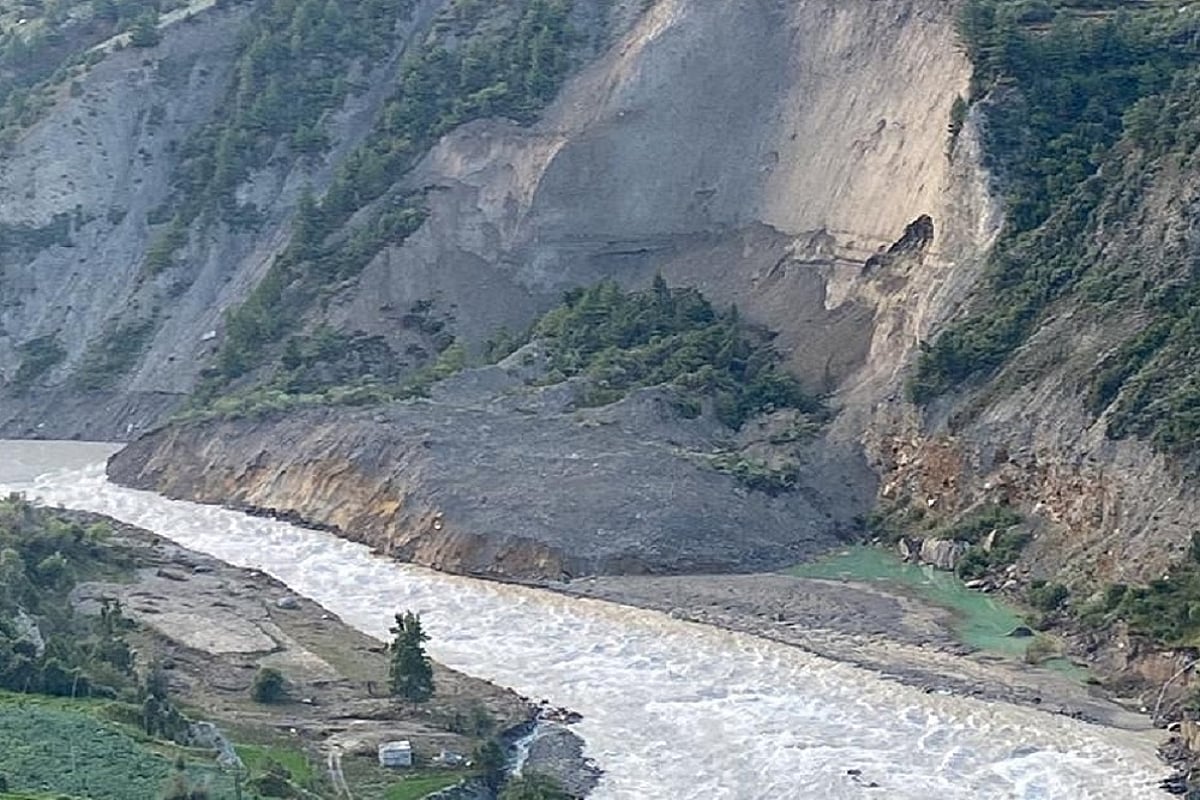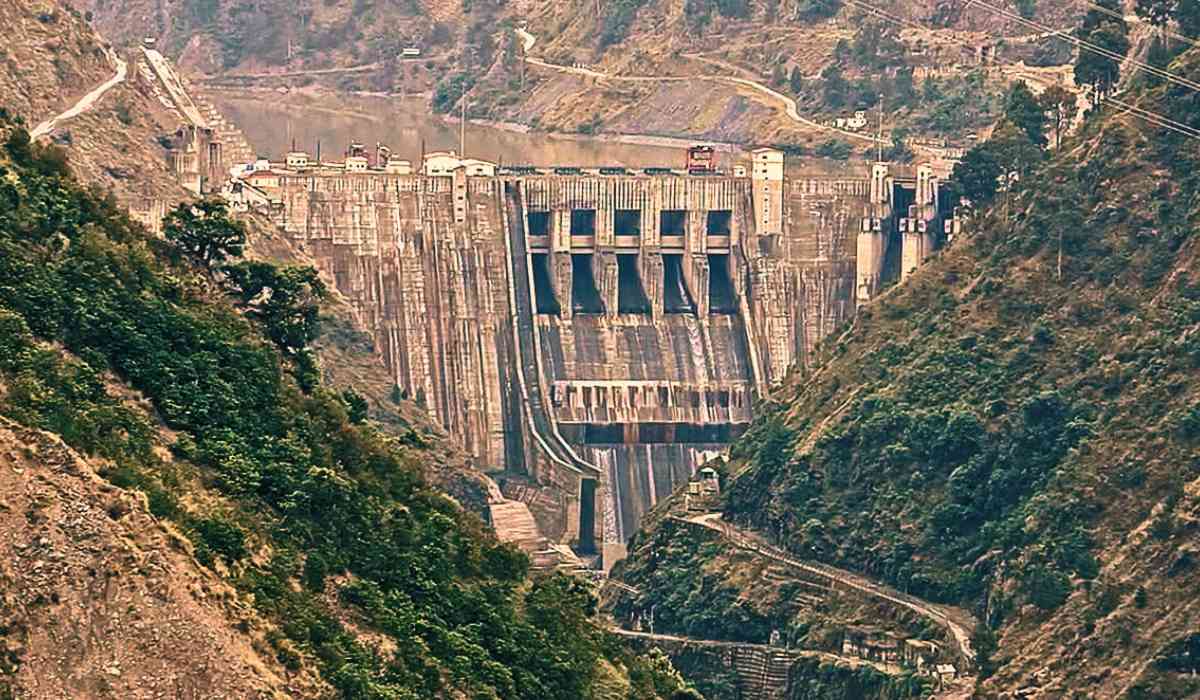In a significant development amid rising tensions between India and Pakistan, India has closed the gates of the Baglihar and Salal dams on the Chenab River, drastically reducing the river’s flow into Pakistan. This move follows India’s suspension of the Indus Waters Treaty (IWT), a landmark 1960 agreement that has governed water sharing between the two countries for over six decades.
What Happened?

The gates of the Salal Dam in Jammu and Kashmir’s Reasi district were completely shut, leading to a sharp drop in water levels downstream. Similar action was taken earlier at the Baglihar Dam in the Ramban district. These dams regulate the flow of the Chenab River, which is one of the major rivers flowing from India into Pakistan. As a result, large stretches of the riverbed downstream, especially near the border, have dried up or are running at minimal water levels.
The Indian government has also indicated plans to take similar measures at the Kishanganga Dam on the Jhelum River, another vital water source for Pakistan.
Why Did India Take This Step?
This action came in the wake of a deadly terror attack in Pahalgam, Jammu and Kashmir, which claimed 26 lives, mostly tourists. India identified some attackers as Pakistani nationals and responded by suspending the Indus Waters Treaty on April 24, 2025. The treaty, brokered by the World Bank and signed in 1960, has been a rare example of cooperation between the two countries despite multiple wars and ongoing hostilities.

India’s suspension of the treaty is a strong political message aimed at pressuring Pakistan to curb cross-border terrorism. Officials also cited technical reasons such as the need for “reservoir flushing” - a maintenance operation that clears sediment from dams to restore efficiency - as a justification for closing the gates. This flushing process, which had been restricted under the treaty, is now being conducted freely by India, marking a departure from treaty constraints.
What Is the Indus Waters Treaty?
The Indus Waters Treaty divides the waters of six rivers in the Indus basin between India and Pakistan. India controls the waters of the Sutlej, Beas, and Ravi rivers, while Pakistan has rights over the Chenab, Jhelum, and the Indus rivers. The treaty has survived wars and conflicts, providing water security to around 80% of Pakistan’s agricultural lands.
Despite the treaty’s resilience, India’s decision to suspend it signals a major shift. India has vowed that “not one drop” of water will cross into Pakistan as long as the treaty remains suspended.
Impact on Pakistan

The immediate effect of the dam closures is a drastic reduction in water flow into Pakistan from the Chenab River. Locals near the river reported water levels dropping from 25-30 feet to just 1.5-2 feet. This reduction threatens Pakistan’s agriculture, which heavily depends on the Indus river system, and could have wider environmental and economic consequences.
Pakistan has condemned India’s move, calling any attempt to stop or divert water “an act of war.” It is preparing to challenge India’s suspension of the treaty through diplomatic and legal channels, including potentially the United Nations Security Council.
However, experts note that India’s ability to completely stop water flow is limited by the physical capacity of its reservoirs. The current closures are temporary, and the full impact will depend on how India manages its water infrastructure in the coming months.
A Complex and Fragile Situation

The suspension of the Indus Waters Treaty and the closure of dam gates represent a serious escalation in India-Pakistan relations. Water, a vital resource for both nations, has now become a tool in their broader geopolitical conflict.
While India’s actions are framed as a response to terrorism and a move to assert sovereignty, Pakistan views them as a threat to its survival and economy. The situation underscores how intertwined water security and political stability are in this region.
The coming months will be critical. Both countries face internal pressures-India to respond firmly to terrorism, and Pakistan to protect its water resources and agriculture. The international community may also watch closely, as disruption of the Indus river system could have far-reaching humanitarian and environmental consequences.

India’s closure of the Baglihar and Salal dam gates, following the suspension of the Indus Waters Treaty, marks a pivotal moment in South Asian water politics. It highlights the fragile balance between cooperation and conflict over shared natural resources. As the Chenab River runs dry near the border, the hope remains that dialogue and diplomacy will eventually restore this vital lifeline for millions dependent on its waters.
This article aims to present the facts and perspectives surrounding this complex issue in simple language, helping readers understand the significance of these developments without taking sides.
With inputs from agencies
Image Source: Multiple agencies
©️ Copyright 2025. All Rights Reserved Powered by Vygr Media.

























